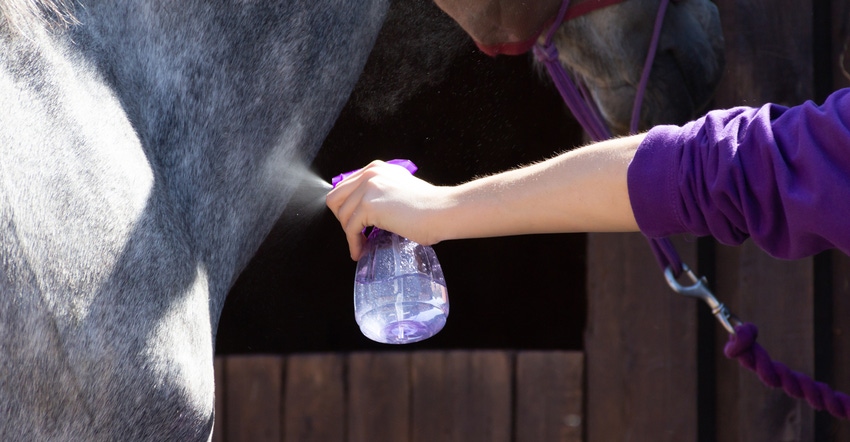August 16, 2021

Michigan residents should take precautions to safeguard not only their animals, but also themselves from mosquito-borne illnesses, advises the Michigan Department of Agriculture and Rural Development, noting confirmed cases of West Nile virus.
WNV typically circulates between birds and mosquitoes, but mosquitoes can also transmit the disease to people and animals, especially horses and other equids. In Michigan, the disease is typically a concern every summer to early fall. The virus is spread through bites from an infected mosquito.
The first case of WNV was confirmed July 15 in a 28-year-old quarter horse mare from Midland County. The undervaccinated mare became ill with a sudden onset of a neurologic disease and was humanely euthanized.
"With the discovery of WNV in a Michigan horse, this signals that the virus is circulating again in the state," says state veterinarian Nora Wineland, DVM. "Its presence underscores the need to take all the necessary steps to protect animals from this disease.”
To combat the spread of this disease, animal owners can:
Talk to a veterinarian about vaccinating horses against WNV and other mosquito-borne illnesses such as eastern equine encephalitis. There are highly effective, safe vaccines available.
House livestock in a barn under fans (as mosquitoes are not strong flyers) during peak mosquito activity from dusk to dawn.
Use insect repellant on animals approved for the species.
Eliminate standing water on the property. Fill in puddles, repair eaves and change the water in buckets and bowls at least once a day.
Contact a veterinarian if an animal shows signs of the illness: mild fever, lack of appetite, lethargy, weakness, stumbling, tremors, and a droopy lip or head tilt.
Note that various mosquito-borne diseases are reportable to MDARD. Cases can be reported by completing and submitting a Reportable Disease Form to [email protected].
While there were no reported cases of WNV in domestic animals in 2020, there was one case of the disease in a Lapeer County horse in 2019. Also, the state saw more significant WNV activity in 2017, with 15 cases reported in equids.
This year, the virus also has been identified in five wild birds from four Michigan counties (Berrien, Calhoun, Cass and Ingham) and three mosquito pools from three counties (Calhoun, Kent and Oakland).
For more information about WNV, visit Michigan.gov/WNV.
Source: MDARD, which is solely responsible for the information provided and is wholly owned by the source. Informa Business Media and all its subsidiaries are not responsible for any of the content contained in this information asset.
You May Also Like




